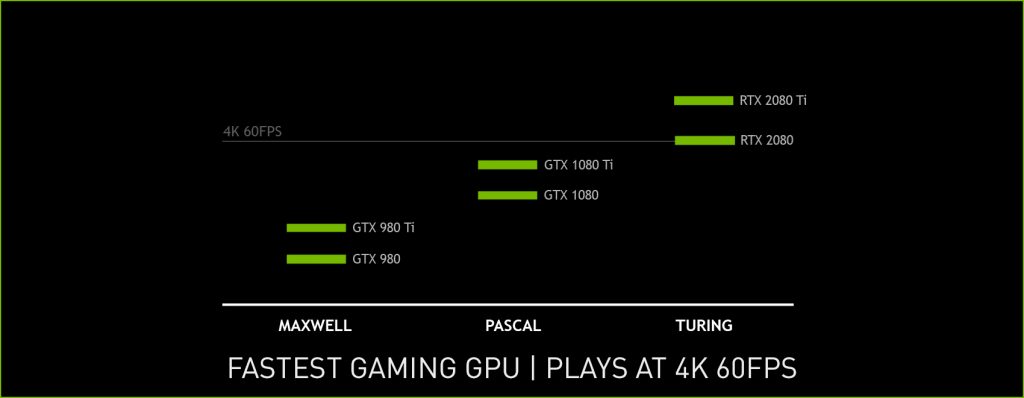GeForce RTX GPUs are the first to finally deliver the performance for even the toughest modern games with cranked-up settings.
Fortunately for gamers, 4K monitors are now more widely available and affordable than ever. A quick online search shows a bevy of 4K monitors, starting as low as US$300. What once costs thousands of dollars is now within reach for millions of PC gamers.
NVIDIA founder and CEO Jensen Huang talked about this during his keynote address at GTC Japan today in Tokyo. In a dramatic two-hour presentation to some 4,000 attendees, he compared Turing’s unprecedented capabilities to those of previous-generation Pascal (10-series) and Maxwell (9-series) GPUs.

He also described how Turing’s AI-enhanced graphics can be used to improve performance through the use of our GeForce RTX platform’s Deep Learning Super Sampling. DLSS uses the power of deep learning and AI to train the GPU to render crisp game images while running up to 2x faster than previous generation GPUs using conventional anti-aliasing techniques today.
And, in advance of the GeForce RTX launch next week, we’re excited to tell you that nine new titles are supporting NVIDIA RTX platform’s Deep Learning Super-Sampling (DLSS), bringing the total to 25 announced games which will utilise this cutting-edge technology.
In addition to the 16 titles we announced last month, the nine newly-announced titles tonight that will support DLSS are:
- Darksiders III from Gunfire Games / THQ Nordic
- Deliver Us The Moon: Fortuna from KeokeN Interactive
- Fear the Wolves from Vostok Games / Focus Home Interactive
- Hellblade: Senua’s Sacrifice from Ninja Theory
- KINETIK from Hero Machine Studios
- Outpost Zero from Symmetric Games / tinyBuild Games
- Overkill’s The Walking Dead from Overkill Software / Starbreeze Studios
- SCUM from Gamepires / Devolver Digital
- Stormdivers from Housemarque
For more details and a chance to check out some of the game trailers, please take a look at
https://www.nvidia.com/en-us/geforce/news/geforce-rtx-dlss-new-games-september-2018/





